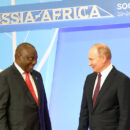Lethal Violence in Darfur: May
I have continued to monitor closely the incidents involving fatalities in Darfur. The UNAMID monitoring reports are thorough. Cross-checking with other sources bears out the impression that the reporting is close to comprehensive. During May, there were 29 reported incidents involving deaths on account of violence.
The most important incident by far was the fighting between JEM and the Sudan Government (including SLA-Minawi forces) in Karnoi and Um Buru in the third week of May. The tally of fatalities was 47, all combatants, distributed among the three groups.
The other 28 incidents led to 52 fatalities, of which 42 are considered fully confirmed and ten reputably reported but unverified. For this summary I am including those ten.
The second largest incident occurred on 9 May, when police mounted an operation against groups accused of rebel activities in the Buram area of South Darfur. The operation was directed against two Arab groups, one from the Habbaniya and the other from the Rizeigat, which were suspected to be involved in inflaming a tribal conflict. Eight of the Arab “rebels” were killed and seven arrested.
The next most serious incident was on 17 May when a group of militiamen clashed with the army in al Fashir market, opening fire and killing four civilians and one soldier.
On two separate incidents that day, unknown attackers killed eight people in attacks on villages. The perpetrators were intent on stealing animals but could well have been out-of-control militiamen.
The remainder of the attacks included a rebel ambush that killed three policemen, a JEM attack that killed two soldiers, a fight between Military Intelligence and the Central Reserve Police in which three were killed on both sides, a number of bandit attacks in which six civilians, two policemen and one soldier died, and criminal incidents in which a number of individuals died. The latter included a family dispute, a man who killed his girlfriends, a case in which a man discovered his wife drinking with two soldiers leading to a fight in which the man died, and a soccer referee stabbed to death by an angry fan.
One interesting feature of the incident tally of May is that two of the principal causes of fatalities in earlier months were either reduced or largely absent. The only incident of inter-tribal fighting was the pre-emptive police operation against the Habbaniya and Rizeigat tribal militiamen. By contrast, 121 people died in inter-tribal fighting in south Darfur during January-March.
The only serious clash between the armed movements and government forces was the battles around Karnoi and Um Buru. The number of fatalities has not been properly verified.
Fighting among government security forces, police and militia, and signatory groups of former rebels, was also reduced. This caused only nine fatalities in May (five of them in one incident in al Fashir market), much down on levels of 2008.
Arab militia attacks on civilians have not been a feature of the war in Darfur for the last fourteen months, and the fighting and burning in the northern parts of west Darfur, during the JEM offensives of February 2008, were in fact the only occasions in which the militia have been active against non-Arab civilians on a significant scale since 2006.
The monthly fatality tallies for 2009 thus far are:
January: 183
February: 102
March: 121
April: 22
May: 99
It is also striking that in meetings with representatives of almost all communities across Darfur, including the vast majority of IDP camps, over the last two months, very few representatives have raised recent incidents of lethal violence. For Darfurians, it is fair to say, the issue today is not killing.






Dear Alex
Five hundred twenty seven deaths are too many. Comparative statistical analysis with the earlier incidents in 2003/4 will certainly show massive reduction of fatalities in the region. Your statistic proves the fact that blood is still spilt in the sands of Darfur as a result of the conflict. I note that those who have been displaced subsequent to the conflict during the same period are not included. We are not here to argue quantitative reduction of violence but we are trying to make a case for acknowledging that there is an ongoing problem in Darfur. There are no villages for the militias to attack and burn down simply because the job has been properly done in the early course of the conflict. The new settlers do not need to fight among themselves because they have managed to displace the original inhabitants. The fighting is left for the movements to battle for their cause and that is why most of the deaths are among combatants.
Those in the IDP camps are the same villagers who have been displaced by the militias. It is not in the interest of the government or its militias to attack them in their new place of dwelling. The camps are what the militias want the villagers to be in for the rest of their lives. They do not want to push them further or to corner them lest they turn and fight back.
The ongoing issue is the political question not the numbers of people killed in Darfur. Al-Bashir admitted the killing of ten thousands and the displacement of over two millions. He is happier with the outcome and in no mood to push it further.
The change in demography of the region makes it impossible for new events to equate what happened during the early periods of the conflict. The job has been successfully accomplished nearly two years ago. The Sudanese air forces find no civilian targets to bomb and the militias have already secured land, which they no longer need to expel their original owners from. That is why the numbers of deaths are few.
Derrida in Khartoum – Is the Disintegration of the Sudan Imminent?
My latest contribution to Konkret (7/09) deals with the intensification of the many conflicts in Africa’s biggest country. Some analysts even go so far as to predict a Somalia scenario any time soon. The warrant of arrest of the ICC for President Omar al-Bashir was supposed to raise the pressure on the Islamists, but some observers doubt that this strategy in fact succeeded. Read some excerpts of that article here.
http://rubeneberlein.wordpress.com
Dear Tahir
You are absolutely correct. We need to move the focus on from the sterile and misleadingly-framed question of “how many are dying” to the political challenge of resolving the reasons why the Darfur conflict erupted, and why it took on such a devastating form with enormous social, demographic, humanitarian and above all, political consequences.
As you know, the AU Panel had planned to travel to meet with the JEM leadership in the field on Wednesday, but was unable to do so on account of military activities in the area. The visit has been postponed, not cancelled. In his press conference yesterday, Pres. Mbeki made it clear that he intends to continue his engagement with the JEM leadership on the key political issues of peace, justice, reconciliation and the role of Darfur in Sudanese national political life, prior to formulating the recommendations of the AU Panel.
It is true that focusing on the number of deaths is misleading and drives attention away from the real issues. before South Sudan took arms against the north in the +2 million casualty war, there were comparatively low death tolls.
Waving the 300.000 or 500.000 death toll in Darfur suggests that if the real death toll had been 35.000 we could all go home and relax.
In the same way, accepting an 150 monthly violent death toll is not a synonym of things working out in Darfur, and it would be great if one day we could stop using them as an index of troubles to come…